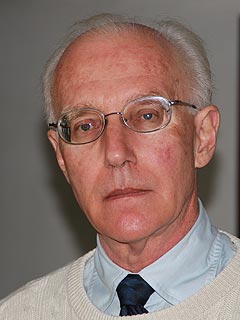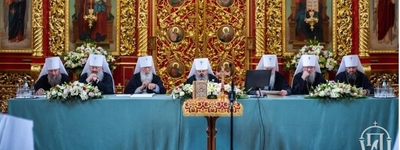The Right To Resist

 The Maidan was a defensive collective action of citizens. It sought to defend the people from state action directed against justice — extra-judicial abductions, torture and killings.
The Maidan was a defensive collective action of citizens. It sought to defend the people from state action directed against justice — extra-judicial abductions, torture and killings.
Was the Maidan a revolution, or just an uprising? It led to a change of regime, and broadened political consciousness. But it did not transform the basic form of government. What about the “Orange Revolution” of 2004, when massive demonstrations against electoral fraud forced the government to hold free and fair elections? Was it really a revolution? It did result in a new government under Victor Yushchenko, and a new level of public consciousness. But it, too, did not substantially change the state system.
Such questions may seem academic. But the words we use for things are important, for they are also an evaluation. Russian propaganda regularly speaks of the Maidan as a “mob” that carried out a “coup” on February 22. Even the prominent American neo-realist political scientist John J. Mearsheimer, in an article in the latest issue of the prestigious journal “Foreign Affairs,” speaks of the transfer of power from Yanukovych to Yatseniuk as a “coup d’état.” Critics argue that as a result, the interim government and even the subsequent elected government are not quite legitimate.
Yet the term “revolution” generally has a positive connotation, perhaps because so many of today’s democratic systems can be traced back to the models of the American and French revolutions. And rightly or wrongly, Ukrainians have inherited a favorable view of popular uprisings against authority, perhaps because in most cases those rising up were Ukrainian, while the authorities were Polish or Russian. But it is worth remembering that the Church has often condemned revolutions. Some would even say that it opposes them in principle. Why would that be?
Jesus Himself stated that one must “render unto Caesar” (that is, the state) what is Caesar’s, and to God those things that are God’s. This is attested in the three synoptic gospels (Mark 12:13-17, Matthew 22:15-22, Luke 20:19-26.) There is thus good authority for the Christian’s duty to pay taxes and generally obey the law of the land. It is Saint Paul, however, who explicitly states that since all authority is from God, everyone must be subject to the governing authorities and may not resist them (Romans 13:1-7). These passages have often been cited to show that Christians should be loyal to the state and never rise against it.
Nevertheless, the Church also teaches that the political authorities have a duty to respect the fundamental rights of the human person. Political rights, which are meant to be exercised for the common good of the nation and the human community, should be granted according to this purpose (Catechism of the Catholic Church, 2nd edition, 1997, sec. 2237). If the civil authorities issue directives contrary to the demands of the moral order, the fundamental rights of persons, or the teaching of the Gospel, the citizen is obligated not to follow them (id., sec. 2242). When certain conditions are met, even armed resistance to oppression by political authority may be legitimate (id., sec. 2243).
Historically, the movements stemming from the French Revolution did not always meet the criteria for legitimate resistance to oppression. Moreover, they were often directed against the Church and the faith itself. In 1830, the Roman curia opposed the national uprisings in Belgium, Ireland, and Poland. The evolution of Pope Pius IX (Pope 1846-1878) from liberalism to bitter opposition to the Italian revolutionary movement is well known. Leo XIII (Pope 1878-1903) recognized the need for social reform, but criticized materialistic socialism and other ideologies being advanced by revolutionary movements.
Yet the popes have also recognized that when the government itself is opposed to morality, human rights, or Christian teaching, revolutionary action may be justified. In the wake of the Mexican revolution of 1910, culminating in the anti-clerical 1917 Constitution and subsequent laws, successive regimes persecuted the Catholic Church. This gave rise to the popular resistance movement of the cristeros. Although the conflict between Church and state was partly resolved in 1929, and after 1934 president Lázaro Cárdenas sought peace with the Catholics, conflicts over Catholic Action remained. On March 28, 1937 Pope Pius XI issued the encyclical Firmissimam Constantiam, addressed to the Mexican bishops, in which he defended popular resistance to an unjust government:
27. You have more than once recalled to your Faithful that the Church protects peace and order, even at the cost of grave sacrifices, and that it condemns every unjust insurrection or violence against constituted powers. On the other hand, among you it has also been said that, whenever these powers arise against justice and truth even to destroying the very foundations of authority, it is not to be seen how those citizens are to be condemned who united to defend themselves and the nation, by licit and appropriate means, against those who make use of public power to bring it to ruin.
The Maidan was such a defensive collective action of citizens. It sought to defend the people from state action directed against justice -- extra-judicial abductions, torture and killings. The Yanukovych regime had violated fundamental human rights by ordering beatings and shootings of peaceful demonstrators. Hence, the people were justified in uniting in non-violent resistance to the regime. (Whether the criteria for armed resistance in section 2243 of the Cathechism were met is debatable, but this is not of concern here, as the overwhelming majority of the Maidan demonstrators were peaceful and unarmed.)
Thus, in the Christian perspective, the question of whether the Maidan was a revolution is less important than whether it was justified. And the answer to that depends on how one evaluates the conduct of the authorities.
Yet it is also worth considering what the goals of this popular uprising or revolution actually were. They varied over time. But they are more easily stated in the negative. At first, the demonstrators opposed the government’s turning away from the Association Agreement with the European Union. Soon, this became a protest against corruption. To many, it was a rejection of the regime’s subservience to Russia. And finally, it became an expression of outrage at government violence. But what was the positive program? If the activists of the Maidan wanted a new type of government altogether – that is, a revolution – what kind of government would that be?
Here, it is not enough to merely repeat the standard litany of “freedom and human rights” or “democracy and the rule of law,” vitally important though these may be. For these are means, not ends. One must still ask what goals the state ought to pursue under these conditions and by means of these institutions.
According to Aristotle, the state exists for the sake of the “good life” or “happiness.” If the sacrifices of the Maidan are to bear fruit, Ukraine’s leaders must have a clear vision of what that goal really means.










